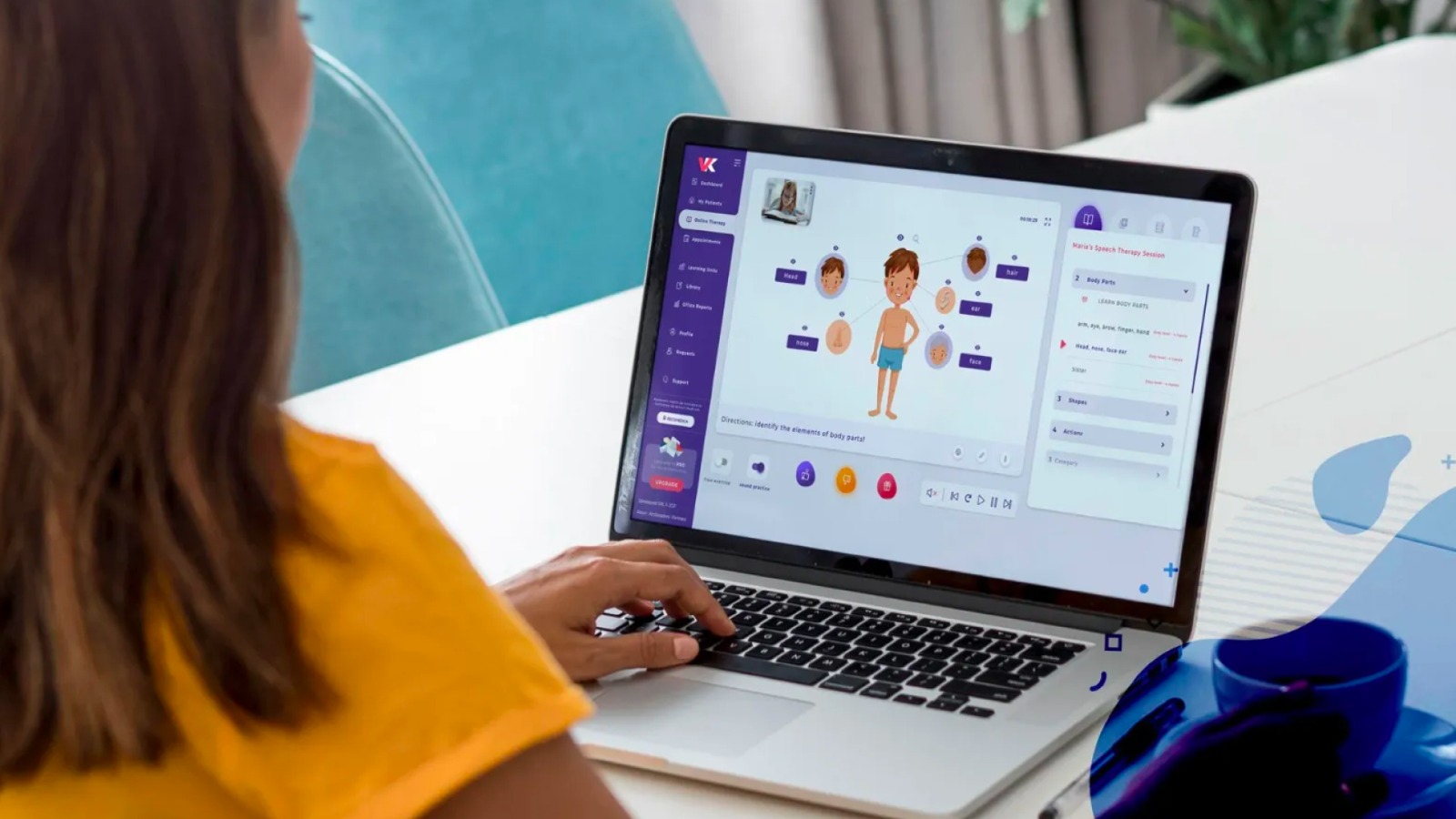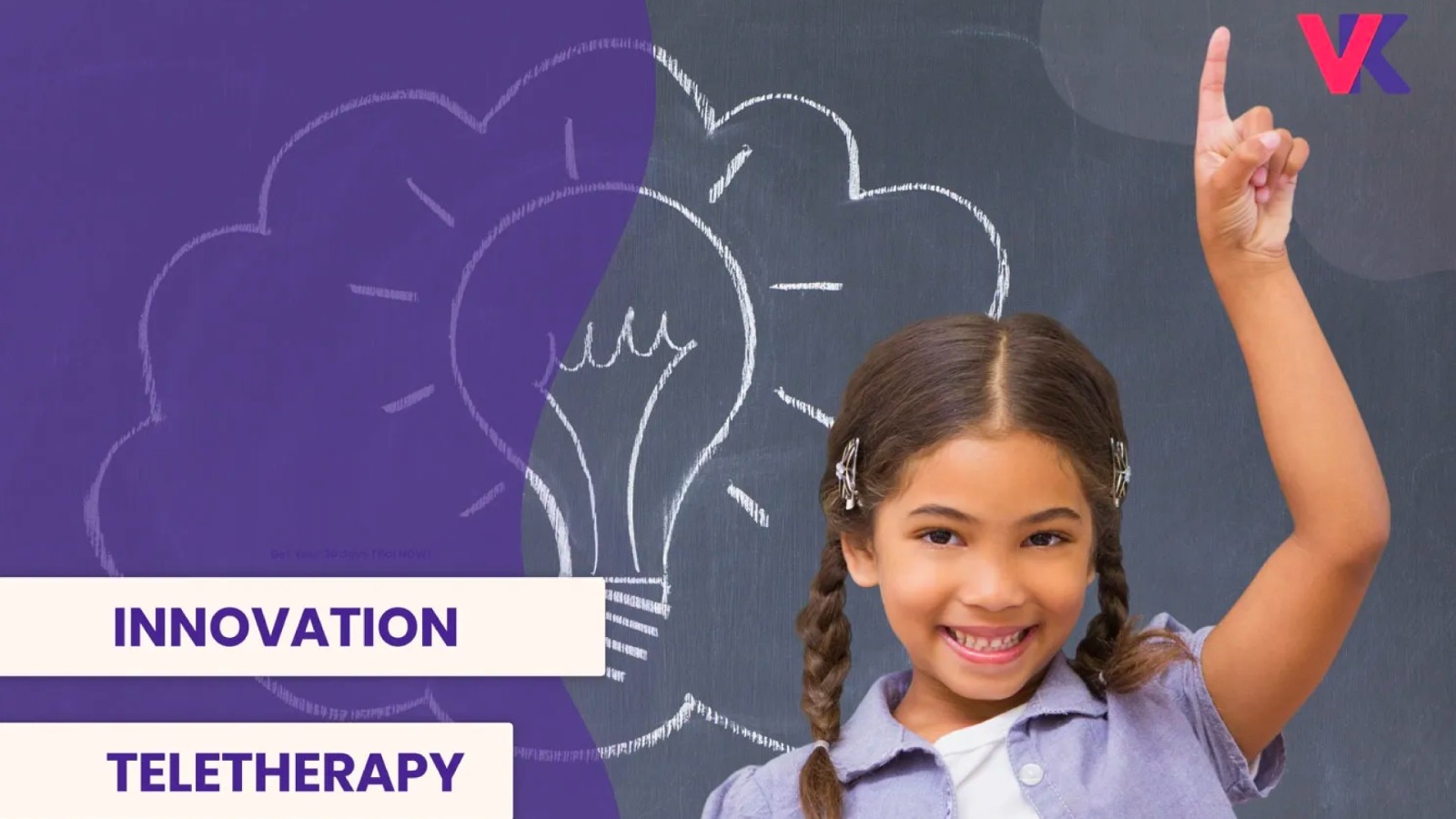Voxi: Hello Bev! Since you are part of the Voxi team, we would like to interview you so that our readers can get to know you better. We want everyone who follows and reads us to know that we work with the most dedicated professionals!
Let's start at the beginning – who is Bev Jessup?
Bev: Hello, my name is Beverly Jessup, and I am a speech therapist from England. For over 30 years, I have worked with children and adults in different settings (schools, nurseries, clinics, special schools, clients' homes, and hospitals). Over time, I have trained teachers, therapists, assistants, and parents/caregivers to develop effective communication skills and in various therapy programs. I specialize in working with children who have a language impairment and have difficulty accessing school material in the classroom, as well as nonverbal adults and children who need to use electronic means of communication, such as an iPad or other similar devices. I am also trained in the use of Makaton signs and symbols, as well as alternative forms of communication. Recently, I have received an influx of adults who have had strokes or head injuries, with acquired aphasia and dyspraxia.
Q: How did you decide to contribute to a digital speech therapy platform? Why VoxiClinic?
B: In 2010, I decided I wanted to do something different and entered a business competition to invent my own software that therapists could use to provide online therapy. At that time, I became one of the finalists in the south of England, but unfortunately, I did not win the competition. Even so, I have always had this passion in my mind and soul. When I got involved in VoxiClinic, I wanted to help the team develop the technology and platform through which therapists can:
evaluate and get to know potential clients
offer clients the best online therapy, with motivating games and resources
keep track of all related documents digitally, in one place
Since I had been offering online therapy since 2015, long before the COVID pandemic, I knew I had both the experience and technological knowledge – as well as the therapeutic skills needed to seamlessly integrate both aspects.
Q: What is the most important advantage of digitizing speech therapy?
B: Technology has progressed significantly since 2015, and I enjoy talking to the young software developers at VoxiClinic and making sure they produce a platform that adapts and evolves according to new requirements.
I think it is very important that teletherapy is accessible to clients because it helps speech therapists reach a larger number of clients. I have been able to work with clients from all over the world, such as: Saudi Arabia, Nigeria, Fiji, China, Italy, France and, of course, from all over England. The fact that I live on an island meant that it would have been impossible to meet with clients from mainland UK because it would have been too costly in both money and time. Now, I can sit at the end of my garden, turn on the computer, and see someone from another country whose communication needs I am serving as if they were right in front of me.
Q: What are your top 3 favorite features in VoxiClinic?
B: What I really like about VoxiClinic is that it gives you the ability to modify the activities on the platform as you see fit as a therapist. In addition, it has pre-programmed games and activities that can help you during therapy. The design of the images is very bright, and they are nicely arranged on the screen. The wide range of vocabulary elements available is also excellent. They have also incorporated Bing images, which allows therapists to pivot from the included drawings to photographs, so that the activity can be age-appropriate, for adults and adolescents.
Q: What is the biggest challenge you have faced in transcribing classic speech therapy exercises into digital format?
B: I have worked with other speech therapy platforms, and the biggest problem I have encountered when working in a digital format is having the ability to access interactive resources with the child or adult, so that they feel motivated. I also don't like the assessment and reporting features in other platforms. Since I got involved in VoxiClinic, I know that it will have assessments for all ages and a reporting format that will make therapists' work easier.
Q: What are the benefits of teletherapy, and who can benefit from it?
B: The advantages of teletherapy are:
It is available to anyone with access to a laptop and the Internet.
Clients do not have to travel far.
Clients feel more comfortable talking in their personal environment.
It is suitable for older clients, as they no longer have to drive to a hospital and wait for their appointment in a sterile environment.
Being able to see the client's face makes it easier to build a meaningful emotional connection.
Caregivers are within earshot of the therapy session and can follow the techniques used from the comfort of their own home.
Younger clients are so good at technology that they quickly get involved in activities without realizing they are actually working.
Because all sessions are recorded, both children and adults can watch the session together with their caregivers and practice the techniques at their own pace.
V: What's new about the VoxiClinic digital clinic in this industry?
B: VoxiClinic is the first European platform that serves speech therapists from all over the world. It has an integrated directory that allows speech therapists to advertise themselves to potential clients worldwide, which I really think will help those therapists who are at the beginning of their careers and don't yet have enough clients or even an online presence.
V: From your perspective, how does VoxiClinic influence the well-being of children?
B: I think the way VoxiClinic is set up will allow more clients from all over the world to be more visible. It will have a huge impact on children and adults who have been waiting a long time to have access to therapy within their healthcare system or at school. There is also the advantage that, if you are a therapist with a special skill or speaker of a certain language, then you can provide speech therapy through VoxiClinic and you can become known for that expertise through the integrated directory.
For example, if you are an Italian-speaking speech therapist, but you live in Greece and want to provide bilingual therapy to an Italian child, whether in Italy or in England, you will be able to do this very easily with VoxiClinic.
Q: How long does an online speech therapy session last? Does it last as long as a traditional in-office session?
B: Most online therapy sessions last half an hour, but in my experience, clients most often want 45-minute or even one-hour sessions. However, when dealing with very young children, you can also do just 15 minutes twice a week. This frequency would not work in offline therapy. There is also an opportunity to do training with parents or caregivers. Another aspect that VoxiClinic has that other platforms don't is the ability to give homework to clients through the VoxiKids mobile app, which makes speech therapy activities more fun and interactive, making it easier for parents to get involved and make sure the homework is done.
For those who are thinking of starting their own online therapy clinic and need a reliable, HIPPA-compliant platform through which to provide therapy with excellent resources, a serious server, whiteboard, a way to share the screen without errors, and the ability to keep all your notes and reports in one safe place, then VoxiClinic is the ideal platform for you!
Why not arrange a platform test, get in touch with a VOXi representative to walk you through the entire registration process and show you how to try out the activities that are now on the platform?
Thank you, Bev!





